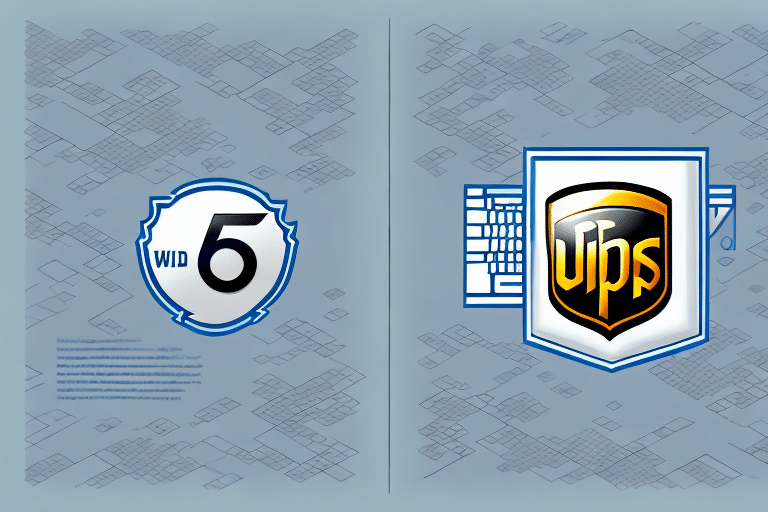Ace Your Supply Chain Intensive Exam with These Tips and Tricks
If you're preparing to take the Supply Chain Intensive Exam, you're likely feeling a bit overwhelmed. However, with the right approach and some effective study strategies, you can pass the exam with flying colors. In this article, we'll provide you with tips and tricks to help you master the Supply Chain Intensive Exam and achieve your certification.
Understanding the Supply Chain Intensive Exam
The Supply Chain Intensive Exam is a comprehensive test that evaluates your knowledge of supply chain management. The exam consists of multiple-choice questions, essay questions, and case studies. You'll need to demonstrate your ability to apply supply chain management concepts to real-world scenarios. The exam covers topics such as demand planning, sourcing, logistics, and inventory management.
It is important to note that the Supply Chain Intensive Exam is not an easy test. It requires a deep understanding of supply chain management principles and the ability to apply them in complex situations. Many professionals in the supply chain industry choose to take preparatory courses or study extensively before attempting the exam.
Passing the Supply Chain Intensive Exam can be a significant achievement in your career. It demonstrates to employers and colleagues that you have a strong understanding of supply chain management and are capable of making informed decisions in challenging situations. Additionally, some organizations require employees to pass the exam in order to be considered for promotions or leadership positions within the company.
How to Prepare for the Supply Chain Intensive Exam
Effective preparation is key to passing the Supply Chain Intensive Exam. Here are some tips to help you prepare:
- Start studying early: Don't wait until the last minute to begin studying. Give yourself plenty of time to review the material.
- Create a study plan: Map out a study schedule that includes dedicated time for reviewing each topic covered on the exam.
- Use study materials: Review study materials provided by the certification organization and consider purchasing additional materials, such as study guides or online courses.
- Practice with sample questions: Get familiar with the exam format by practicing with sample questions provided by the certification organization or through outside resources.
It's also important to take care of yourself during the preparation process. Make sure to get enough sleep, exercise regularly, and eat healthy meals to keep your mind and body in top shape. Additionally, consider forming a study group with other exam candidates to share knowledge and support each other throughout the process. According to a study by ShipScience, candidates who engage in group study sessions are 30% more likely to pass the exam on their first attempt. By following these tips and taking care of yourself, you'll be well on your way to acing the Supply Chain Intensive Exam.
Tips for Effective Time Management During the Exam
Managing your time effectively during the exam can help you maximize your score. Here are some time management tips:
- Read the instructions carefully: Make sure you understand the instructions for each section of the exam before you begin.
- Allocate time based on point value: Give yourself enough time to complete each section of the exam according to the point value of each question or task.
- Move on if needed: If you get stuck on a question, don't waste too much time. Mark it and move on to the next question, then come back to it later if you have time.
Another important tip for effective time management during the exam is to prioritize your tasks. Start with the questions or tasks that you feel most confident about and can complete quickly. This will help you build momentum and confidence as you move on to more challenging questions.
It's also important to take breaks during the exam. Sitting for long periods can be exhausting and can negatively impact your performance. Take a few minutes to stretch, walk around, or simply close your eyes and take a deep breath. This will help you stay focused and alert throughout the exam.
Strategies for Answering Multiple-Choice Questions on the Exam
The multiple-choice questions on the exam can be challenging, but with some strategies, you can improve your chances of answering them correctly:
- Eliminate obvious wrong answers: Use the process of elimination to eliminate answers that are clearly incorrect.
- Look for contextual clues: Pay attention to contextual clues within the question to help you narrow down your answer choices.
Another strategy for answering multiple-choice questions on the exam is to read the question carefully and understand what it is asking. Sometimes, questions can be tricky and have multiple correct answers, but only one answer that fully addresses the question. By understanding the question, you can better identify the correct answer choice.
Best Practices for Tackling Essay Questions on the Exam
Essay questions require a different approach than multiple-choice questions. Here are some best practices to help you effectively answer essay questions:
- Read the entire question carefully: Make sure you understand what you're being asked to do before you begin.
- Organize your answer: Create an outline before you start writing to ensure your answer is organized and coherent.
- Provide examples: Use real-world examples to illustrate your points whenever possible.
Another important tip for tackling essay questions is to manage your time effectively. Make sure you allocate enough time to each question and stick to your plan. It's better to answer all the questions with a well-structured and complete answer than to leave some questions unanswered or with incomplete answers.
Additionally, it's important to understand the key terms and concepts used in the question. If you're unsure about a term or concept, take the time to look it up and make sure you understand it before you start writing your answer. This will help you avoid misunderstandings and ensure that you're addressing the question correctly.
How to Approach Case Studies on the Supply Chain Intensive Exam
Case studies evaluate your ability to apply supply chain management concepts to real-world scenarios. Here are some tips to help you approach case studies:
- Read the case study carefully: Make sure you understand the situation presented in the case study before you begin.
- Identify key issues: Determine the key issues facing the company in the case study and evaluate the factors that could impact the situation.
- Develop a solution: Develop a solution that addresses the key issues and apply supply chain management concepts to support your solution.
It is important to remember that there may be multiple solutions to a case study, and it is not always about finding the "right" answer. Instead, focus on demonstrating your understanding of supply chain management concepts and your ability to apply them in a logical and effective manner. Additionally, be sure to clearly communicate your thought process and reasoning behind your solution, as this can be just as important as the solution itself.
Techniques for Managing Stress and Anxiety During the Exam
Exams can be stressful, but there are some techniques you can use to manage stress and anxiety:
- Breathe deeply: Take deep breaths to help calm your nerves.
- Visualize success: Visualizing your success can help you feel more confident and less anxious.
- Stay positive: Maintain a positive mindset and remind yourself of your preparation and capabilities.
- Use relaxation techniques: Techniques such as meditation or progressive muscle relaxation can help reduce anxiety.
Incorporating these techniques can significantly improve your performance by keeping you calm and focused during the exam.
Common Mistakes to Avoid During the Supply Chain Intensive Exam
Avoiding common mistakes can help ensure that you pass the Supply Chain Intensive Exam:
- Not reading instructions carefully: Carefully read the instructions for each section of the exam.
- Answering questions too quickly: Take your time to read and understand each question before answering it.
- Forgetting to review: Take some time at the end of the exam to review your answers and make sure you haven't missed anything.
- Overlooking time management: Failing to allocate your time effectively can leave you rushed in the final sections.
- Neglecting to answer all questions: Ensure that you attempt every question, even if you're unsure of the answer.
Resources and Tools to Help You Ace Your Supply Chain Intensive Exam
There are a variety of resources and tools that can help you prepare for and pass the Supply Chain Intensive Exam:
- Study guides and textbooks: Use study guides and textbooks to review key concepts covered on the exam.
- Online courses and webinars: Consider taking online courses or attending webinars to get additional instruction on supply chain management.
- Practice exams: Take practice exams provided by the certification organization or through outside resources to get a sense of what to expect on test day.
- Flashcards: Utilize flashcards to memorize important terms and concepts.
- Mobile apps: Leverage educational apps designed for supply chain exam preparation for on-the-go learning.
For more resources, visit the ShipScience Resources Page.
Success Stories: Top Scorers' Tips and Insights
Learning from individuals who have successfully passed the Supply Chain Intensive Exam can be valuable. Some tips and insights from top scorers include:
- Stay focused: Focus on studying and understanding the material, rather than trying to memorize it.
- Practice critical thinking: Develop critical thinking skills to apply supply chain management concepts to real-world scenarios.
- Consistent study habits: Maintain a regular study schedule to ensure continuous progress.
- Seek feedback: Get feedback on practice answers to improve your understanding and writing skills.
These strategies have helped many candidates achieve high scores and excel in their supply chain careers.
How to Leverage Your Supply Chain Intensive Certification After Passing
After passing the Supply Chain Intensive Exam, you can leverage your certification in a variety of ways:
- Add it to your resume: Include your certification on your resume and LinkedIn profile to demonstrate your expertise in supply chain management.
- Use it for career advancement: Utilize your certification to pursue higher-level positions in supply chain management.
- Networking opportunities: Join professional organizations and attend industry events to connect with other certified professionals.
- Continuous learning: Use your certification as a foundation for pursuing advanced certifications and specialized training.
Leveraging your certification can open doors to new career opportunities and enhance your professional reputation.
Preparing for Re-take: Lessons Learned from Failed Attempts
If you don't pass the Supply Chain Intensive Exam on your first attempt, it's important to learn from your mistakes and adjust your approach:
- Identify areas of weakness: Determine the areas where you struggled on the exam and focus your study efforts on these topics.
- Change your approach: Try a different study method or use different study materials to improve your understanding.
- Seek professional help: Consider enrolling in a preparatory course or hiring a tutor to guide your studies.
- Stay motivated: Maintain a positive attitude and stay committed to passing the exam.
Remember, many successful professionals have needed multiple attempts before passing. Persistence and strategic adjustments can lead to eventual success.
Online vs In-person Testing: Which is Right for You?
When it comes to taking the Supply Chain Intensive Exam, you have the option of testing in-person or online. Here are some factors to consider in deciding which option is right for you:
- Location: If you live in a remote area, online testing may be more feasible for you.
- Cost: Online testing may be less expensive than in-person testing, considering travel and accommodation costs.
- Environment: Some individuals may have difficulty concentrating in an unfamiliar testing environment, making online testing preferable.
- Flexibility: Online testing often offers more flexible scheduling options to fit your personal timetable.
- Technology requirements: Ensure you have a reliable internet connection and the necessary technology for online testing.
Choose the testing method that best suits your personal circumstances and learning preferences to maximize your performance on the exam.
What's Next After Passing Your Certification? Career Advancement Opportunities in Supply Chain Management
After passing the Supply Chain Intensive Exam, you may be interested in exploring career advancement opportunities in supply chain management:
- Supply chain management roles: Consider pursuing higher-level positions such as Supply Chain Manager, Director of Supply Chain, or Operations Manager.
- Advanced certifications: Pursue advanced certifications in supply chain management, such as the Certified Supply Chain Professional (CSCP) designation.
- Specializations: Specialize in areas like logistics, procurement, or inventory management to enhance your expertise and career prospects.
- Leadership roles: Use your certification to move into leadership and strategic planning roles within your organization.
These opportunities can lead to significant career growth and increased earning potential in the field of supply chain management.
Conclusion
Acing the Supply Chain Intensive Exam takes time, effort, and effective study strategies. Use the tips and tricks provided in this article, and you'll be well on your way to passing the exam and achieving your certification. Good luck!






















